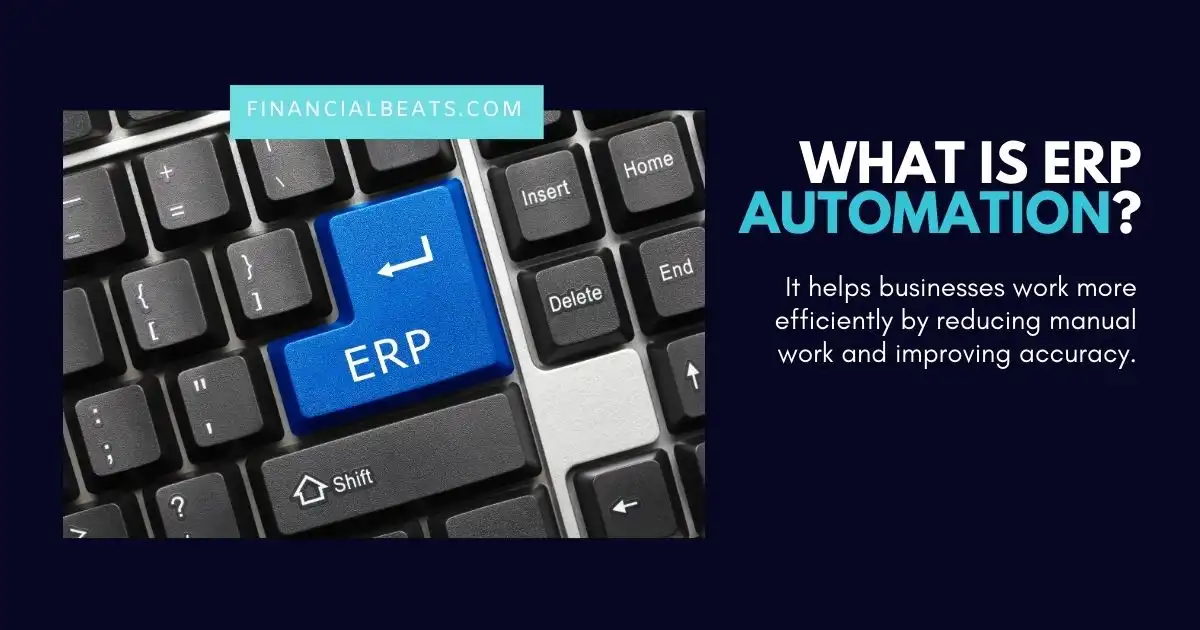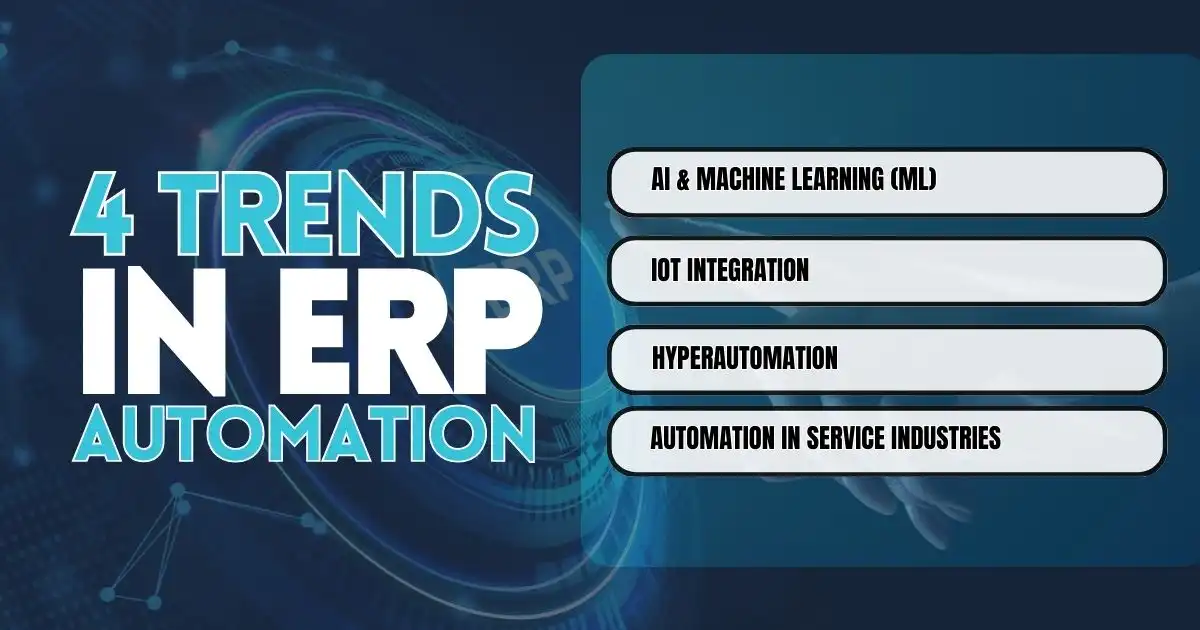The demand for ERP systems is growing fast. Research from HG Insights shows that the global ERP market has grown by 8% since 2022, and businesses are expected to spend $147.7 billion on ERP software by 2025. This shows how important ERP systems are for businesses to stay competitive.
This growth is fueled by new technologies like generative AI and changing business needs, such as meeting sustainability goals and stricter government rules. ERP systems are no longer just about managing resources—they are changing how businesses work.
But what are the latest trends driving ERP systems forward, and how are they helping businesses succeed?
What is ERP Automation?

ERP automation uses smart technologies like machine learning (ML) and artificial intelligence (AI) to handle tasks and make business decisions automatically, without needing people to do them. It helps businesses work more efficiently by reducing manual work and improving accuracy.
ERP automation reduces manual work, minimizes errors, and improves communication across departments, enabling better decision-making. It boosts efficiency by saving time on repetitive tasks, lowers costs by avoiding mistakes, enhances accuracy with automated data handling, and supports scalability to meet business growth.
4 Trends in ERP Automation
ERP (Enterprise Resource Planning) automation is evolving rapidly, thanks to exciting tech advancements. These changes are helping businesses operate smarter and more efficiently.

1. AI & Machine Learning (ML)
These technologies make ERP systems smarter by learning from data and improving over time.
- Predicting the future – AI can look at past data and guess what might happen next. For example, factories can predict when machines might break down so they can fix them before it’s too late. In finance, it can help plan budgets by forecasting cash flow.
- Better automation – AI doesn’t just follow orders—it learns and gets better. For example, it can figure out how much inventory a store needs based on trends like holiday shopping.
2. IoT Integration
The Internet of Things (IoT) connects everyday devices to the internet, and now it’s helping ERP systems, too.
- Tracking stuff – IoT gadgets on machines or vehicles can send real-time updates about how they’re working or where they are. For instance, a sensor in a factory machine can tell the ERP system when it needs fixing.
- Improving supply chains – IoT can help businesses know where their shipments are, how much stock they have, and what’s happening in real time. This prevents running out of products or delays in delivery.
3. Hyperautomation
This fancy word means automating whole workflows instead of just small tasks by combining smart tools like AI, robots, and ERP systems.
- Robotic Process Automation (RPA) – This tech handles repetitive stuff like entering data or creating reports. It works with ERP systems to share information between platforms, saving time and effort.
- Full process automation – Hyperautomation can link different departments—like sales, inventory, and customer service—so everything works together smoothly without human input.
These trends make ERP systems faster, smarter, and more helpful for businesses, making everyday work simpler and more efficient.
4. Automation in Service Industries
Automation is revolutionizing service industries like healthcare, finance, and customer service by using AI and chatbots to improve delivery, efficiency, and customer interactions.
- Chatbots and Virtual Assistants – In customer service, chatbots and virtual assistants provide instant support, answer common questions, and handle basic requests, allowing employees to focus on more complex tasks.
- Efficiency and Integration – Automation in healthcare and finance reduces errors, improves efficiency, and enhances service quality through AI-driven data analysis and task automation. As these technologies integrate further, businesses will need professionals to implement and manage them, ensuring smoother workflows.
ERP Automation is Changing the Way We Work
ERP automation isn’t just a trend—it’s changing how businesses work. The big question is, will you join in or fall behind? Tools like AI, IoT, and smart automation help businesses work faster, save money, and avoid mistakes.
Waiting too long could mean losing out. As industries like healthcare and retail move forward, now is the time to act. Using ERP automation can simplify tasks, improve accuracy, and help your business grow stronger.
The future is already here. Start now, choose the right ERP system, and use automation to help your business succeed. It’s one of the smartest decisions you can make.
FAQs
What are the benefits of automation through ERP?
Automation through ERP helps businesses reduce errors and costs, improve reporting accuracy, and enhance productivity, leading to smoother operations and less waste. As ERP systems integrate advanced technologies like AI, machine learning, and IoT, they will provide insights that support better decision-making and identify emerging trends.
Who are the main users of ERP systems?
Traditionally, ERP systems were designed for large companies that could afford the costs of on-premises platforms and their continuous maintenance.
Today, thanks to the development of cloud-based and software-as-a-service (SaaS) solutions, ERP systems are now available to small and medium-sized businesses, making them more accessible to a broader range of organizations.
What is an example of an ERP system?
ERP systems automate processes like manufacturing, inventory management, procurement, and finance.
For example, a furniture manufacturer can use an ERP system to automate raw material orders while setting alerts for specialty items requiring manual approval, ensuring efficiency and cost control.
What is the future of the ERP industry?
The future of ERP is expected to be driven by cloud-based systems, two-tier platforms, greater personalization and customization, the rise of advanced AI, enhanced predictive analytics, and a growing demand for seamless integration across digital platforms.
